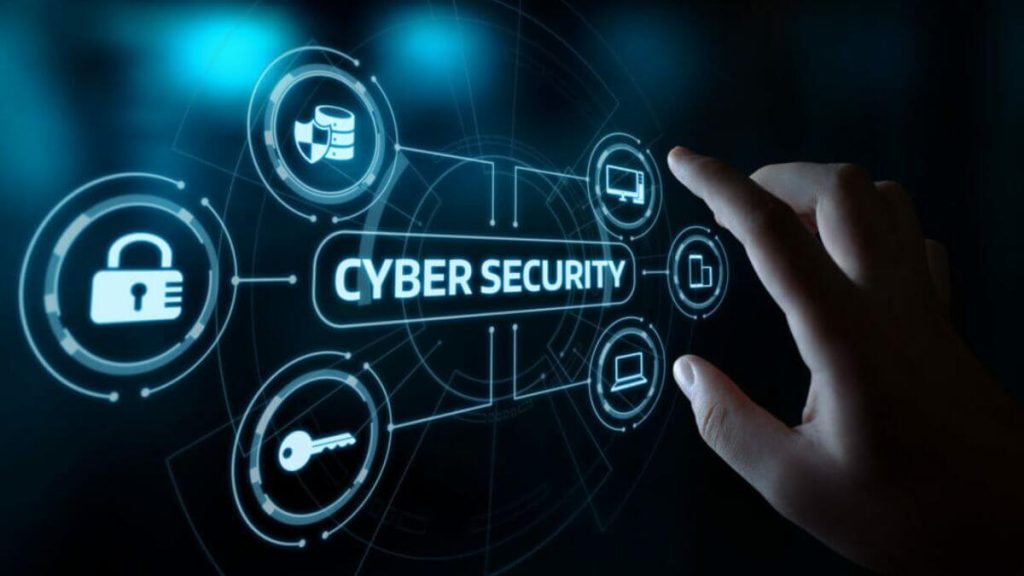Are you considering pursuing a career in cybersecurity? If so, now is a great time to do it! Cybersecurity is a rapidly expanding field with high demand from employers and a shortage of qualified professionals. Job openings are available in almost every industry, and they offer competitive salaries and long-term job stability.
If you are interested in starting a career in cybersecurity or looking to switch to this field, it is important to do a self-assessment first. While the concepts can be learned, having some existing skills can be beneficial. In particular, having an excellent approach to problem-solving and attention to detail are valuable entry-level cybersecurity skills. If you possess these skills, along with the right kind of thinking and a strong work ethic, you could be well on your way to a rewarding career in cybersecurity.
Considering a Career in Cybersecurity: Why Choose It?
Considering a career change can sometimes raise concerns whether you are just starting your career or looking for a new job. You may wonder if it is the right decision or if you should choose another path. However, this is the perfect time to start a career in cybersecurity as it offers various opportunities and roles. According to the U.S. Bureau of Labor Statistics, information security analyst jobs are expected to grow by 32% from now until 2032.
Experts expect cybersecurity hiring to remain strong for the foreseeable future (Fortune, 2023). Here’s why you should consider a career in cybersecurity:
- High Demand: Organizations across industries need skilled cybersecurity professionals to protect their digital assets. The demand for experts in this field continues to grow.
- Job Security: As long as technology exists, cybersecurity will be essential. Job stability is a significant advantage in this ever-evolving field.
- Variety of Roles: Cybersecurity offers diverse roles, including ethical hacking, incident response, risk assessment, and more. You can find a niche that aligns with your interests.
- Continuous Learning: Cybersecurity is dynamic. You’ll constantly learn about new threats, tools, and techniques.
Essential Skills for Entering the Field of Cybersecurity
What are the essential skills needed for a career in cybersecurity? Whether you’re just starting or looking to transition into this field, here are the essential skills you’ll need:
Problem-Solving Skills:
Cybersecurity professionals face complex issues daily. Being able to think creatively and address security threats in innovative ways is crucial. New threats emerge constantly, so adaptability and quick thinking are essential.
Attention to Detail:
In cybersecurity, the smallest details matter. Analyzing logs, identifying vulnerabilities, and understanding attack patterns require meticulous attention to detail.
Analytical Skills: You’ll need to analyze data, assess risks, and make informed decisions. Understanding patterns, trends, and anomalies is vital for effective cybersecurity.
Communication Skills:
As a cybersecurity professional, you’ll collaborate with various teams across different departments. Clear communication is essential for explaining security issues, their impact, and how to address them. You’ll need to convey technical information to both technical and non-technical colleagues.
Technical Proficiency:
- Scripting: Familiarity with scripting languages (such as Python, Bash, or PowerShell) is valuable for automating tasks and analyzing data.
- Network Configuration and Management: Understanding network protocols, firewalls, and network security is fundamental.
- Operating Systems: Proficiency in various operating systems (Windows, Linux, macOS) is essential.
- Security Applications: Knowledge of security tools (antivirus, intrusion detection systems, etc.) is crucial.
- Threats and Vulnerabilities: Understanding common threats (malware, phishing, social engineering) and vulnerabilities (software flaws, misconfigurations) is necessary.
- IT Networking: Familiarity with networking concepts, protocols, and network architecture is beneficial.
- Cloud Security: As cloud adoption increases, understanding cloud security (AWS, Azure, Google Cloud) is valuable.
- Ethical Mindset: Ethical behavior is critical in cybersecurity. You’ll handle sensitive information and make decisions that impact organizations and individuals. Upholding ethical standards is essential.
To advance your career in cybersecurity, it is important to obtain a certification that not only teaches you the foundational technical aspects but also provides hands-on practice. The ideal courses will offer ample lab time, allowing you to learn and practice in real-world scenarios that will help you build your problem-solving skills.
Capture the Flag (CTF) exercises are an effective way to improve technical skills and hone analytical thinking for cyber security. In addition to labs and cyber ranges, CTFs provide great opportunities to gain technical experience.
Also read | Infosys Ransomware Attack: A Wake-Up Call for the IT Services Sector
Embarking on Your Cybersecurity Certification Journey
Certifications validate your skills and enhance your employability. Consider these certifications:
Foundational Certifications:
- CompTIA Security+: A great entry-level certification covering essential security concepts.
- Certified Information Systems Security Professional (CISSP): A globally recognized certification for experienced professionals.
Specialized Certifications:
- Certified Ethical Hacker (CEH): Focuses on ethical hacking and penetration testing.
- Certified Information Security Manager (CISM): Ideal for those interested in information risk management.
Cloud Security Certifications:
- Certified Cloud Security Professional (CCSP): Validates cloud security expertise.
- AWS Certified Security – Specialty: For professionals working with Amazon Web Services.
Hands-On Experience:
- Participate in Capture The Flag (CTF) challenges, practice labs, and real-world scenarios.
- Join cybersecurity communities, attend conferences, and network with industry professionals.
Apply for the C|CT Course
The C|CT program offers a balanced curriculum that combines theoretical teaching with practical experience. The course covers crucial cybersecurity issues that professionals currently face. Additionally, you get to apply what you learn in EC-Council’s Cyber Range, where you can simulate real-world threats and attacks. The program encompasses important topics such as information security and network principles, which you’ll need to address in the Cyber Range. The Certified Cybersecurity Technician (C|CT) course is an excellent starting point. To apply:
- Visit the EC-Council website.
- Navigate to the C|CT course page.
- Click on “Apply Now” or “Enroll.”
- Follow the instructions to complete the application process.
The Certified Cybersecurity Technician (C|CT) program offers training for a variety of cybersecurity roles, including cybersecurity support technicians, ethical hackers, and network support specialists.
Also read

